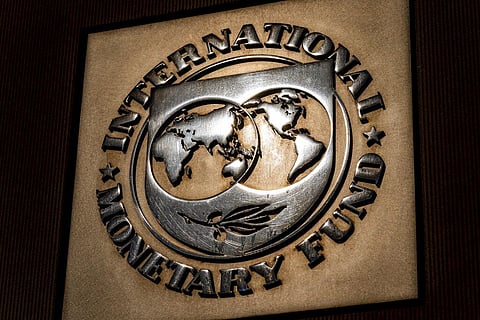

COLOMBO: The visiting IMF delegation and President Ranil Wickremesinghe on Wednesday began crucial talks to finalise a bailout package and secure a staff-level agreement for the cash-strapped country and analysed Sri Lanka's current economic crisis.
Sri Lanka is going through its worst economic crisis since its independence in 1948 which was triggered by a severe paucity of foreign exchange reserves.
The second such visit from the International Monetary Fund (IMF) in three months comes at a time when Sri Lanka is scrambling to chalk out a staff-level agreement with the Washington-based global lender for a USD 5 billion programme, which could be the antidote for the country's current economic travails.
The IMF delegation will be in Colombo till August 31.
IMF's Resident Representative for Sri Lanka, Tubagus Feridhanusetyawan and Finance Secretary Mahinda Siriwardana took part in the talks, media reports said.
"The first round of talks commenced today, during which the IMF delegation analysed the country's current economic crisis," the President's Office said in a statement.
The IMF team is led by Peter Breuer and Masahiro Nozaki, the Washington-based lender announced last week.
Incidentally, President Wickremesinghe is also the Finance, Economic Stabilisation and National Policies Minister.
According to officials, the second round of talks will commence on August 26, during which the delegation will hold technical-level talks with Sri Lanka's Central Bank Governor Nandalal Weerasinghe.
The IMF has said the objective of the visit is to make progress towards reaching a staff-level agreement on a prospective IMF Extended Fund Facility (EFF) arrangement in the near term.
"Because Sri Lanka's public debt is assessed as unsustainable, approval by the IMF Executive Board of the EFF program would require adequate assurances by Sri Lanka's creditors that debt sustainability will be restored.
IMF staff would also continue the engagement with other stakeholders during the visit," the IMF had said in a press release on August 19.
Central Bank governor Weerasinghe said earlier this week that the government had reached policy-level targets and was hopeful of reaching the staff-level agreement.
On the issue of debt restructuring, which is a prerequisite for the IMF facility, Weerasinghe said, "All creditors will be officially approached and we will present our overall macro programme that has been approved by the IMF."
Sri Lankan government on Wednesday slapped a ban on the import of 300 consumer items like chocolates, perfumes and shampoos as part of the cash-strapped island nation's bid to tackle its foreign exchange woes.
"Under imports and exports control regulations dated August 22 an import ban on a wide range of consumer items from food to machinery has come into immediate effect," the notification said.
In mid-April, Sri Lanka declared its international debt default due to the forex crisis.
The country owes USD 51 billion in foreign debt, of which USD 28 billion must be paid by 2027.
The government's statistics office said on Monday that the overall rate of inflation as measured by the National Consumer Price Index on a year-on- year basis had gone up to 66.7 per cent in July over the 58.9 recorded in June.
"This was mainly due to the higher price levels prevailing in both food and non-food groups. The food group increased to 82.5 in July 2022 from 75.8 in June 2022," the release said.
In its latest assessment, the World Bank has said that Sri Lanka has been ranked 5th with the highest food price inflation in the world.
Sri Lanka is ranked behind Zimbabwe, Venezuela, and Turkey, while Lebanon leads the list.
The worsening forex crisis caused essential items shortages triggering massive public protests in the street since early this year that led to the ouster of the Gotabaya Rajapaksa government last month.